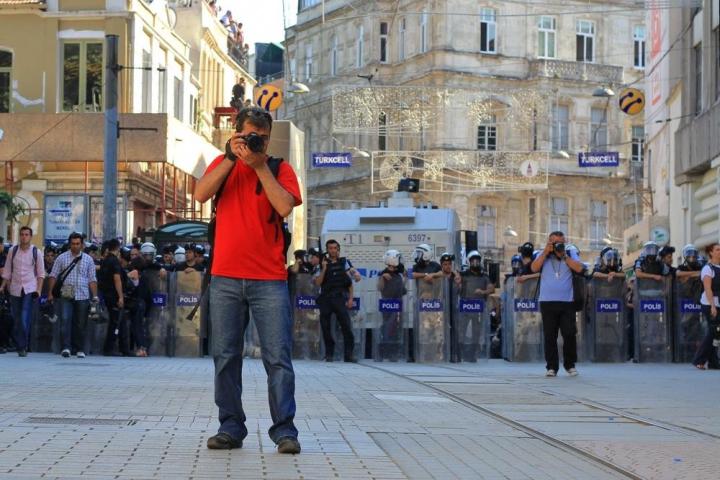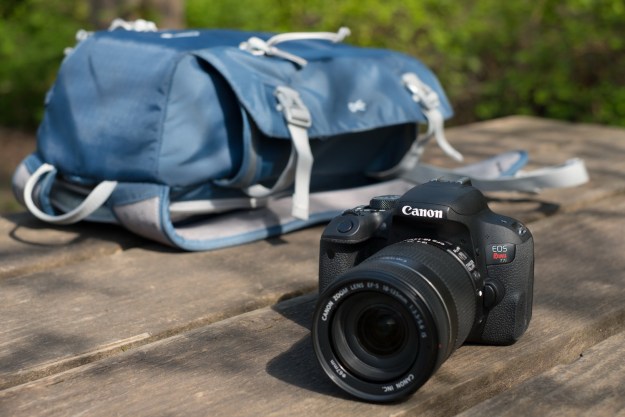
Photography is one of the most democratic forms of expression anyone can practice, whether it’s through the camera embedded in a phone or a sophisticated DSLR-and-lens setup. Yet, it’s also one of the more legally controversial subjects to be debated in our high courts.
Just this week, a judge in New York ruled that an artist who photographed his neighbors across the street – prints of which he then exhibited in a gallery and sold – had the right to do so because art is protected as free speech under the First Amendment, even though the neighbors who brought suit felt their private lives had been invaded.
Of course, this isn’t the first time a photographer has gotten himself into hot water. There seems to be daily reports of people getting into trouble with the law over photography. Most people are under the impression that as long as they’re on public property, not invading someone’s privacy, and shoot for private enjoyment, then their photography is fair game. However, because our judicial system is so complex and laws can be interpreted in many ways, that innocent thinking isn’t enough to keep you out of the courts and enduring a potentially long and costly process. Our Constitution’s First Amendment offers a lot of protection, but it doesn’t shield all photographic activities. For example, photographing a protest and sharing it on YouTube as citizen journalism might be OK, but taking pictures of a building from a public sidewalk for your own use might not be.
Most court cases involving photography and videography center around the First Amendment and issues of copyright infringement. There have been plenty of winners and losers, but here’s a look at some recent court rulings that have upheld your rights as a photographer. Remember, the courts are wacky and, depending on the charge, as well as local and state regulations, outcomes aren’t always the same even though cases might be similar. Most photographers, casual and professional, won’t ever get dragged into courts – let’s hope you won’t either.
Nussenzweig v. diCorcia

After learning a photograph of him had been exhibited in an art gallery and published in a book, Erno Nussenzweig filed a lawsuit in 2005 against photographer Philip-Lorca diCorcia. Nussenzweig, who is a Klausenberg Orthodox Jew and retired diamond merchant, claimed that diCorcia and the Pace/MacGill gallery violated his privacy rights when the photo was taken (and profited from) without his consent as he walked through Times Square in New York City. He also claimed that the photograph violated his religious obligations. In 2006, the court ruled in favor of diCorcia, who had argued that the photo was artistic expression. The courts upheld the ruling in subsequent appeals.
Had Nussenzweig won the case, it would have created massive repercussions for street photography as an art, as many street photographers take photos of subjects without obtaining permission. As the New York Times wrote, photographers like “Lee Friedlander would not have roamed the streets of New York photographing strangers, and Walker Evans would never have produced his series of subway portraits in the 1940’s.” And photographing your neighbors from across the street probably wouldn’t be kosher either.
Lambert v. Polk County
In 1989, Beau Lambert filed a suit against Polk County and the city of Des Moines in Iowa, after his videotape was seized by the police (or taken by someone and given to the police) and not returned. The tape contained footage of a street fight that broke out in downtown Des Moines, which led to one dead. Lambert, who was using his camera with the hope of selling any recorded footage that could be considered newsworthy, claimed that his First Amendment right to gather and broadcast news was violated, even though he wasn’t a member of the press. The court agreed. The judge wrote that “it is not just news organizations … who have First Amendment rights to make and display videotapes of events — all of us, including Lambert, have that right.”
The First Amendment protects photography and video that’s “communicative,” if there’s a possibility that what you record could be shared with an audience as news, but it doesn’t always protect you if you are recording for your own use, the courts have ruled. Seizing the tape violated Lambert’s “First Amendment right to display the tape and disseminate it in any way he wishes,” the judge wrote. So, the next time you record a newsworthy event that could be shared with the public, it can’t be simply seized from you.
Glik v. Cunniffe
As he was walking through Boston Common in 2007, Simon Glik watched some police officers make an arrest. When he noticed the officers using excessive force, he recorded the event with his phone. One of the officers approached Glik, asking if he had recorded the incident and if his phone also records audio. After Glik answered truthfully, he was arrested for violating Massachusetts’ wiretap statute with his “unlawful audio recording” and other infractions. Although all charges were dismissed, Glik filed a civil rights lawsuit against the officers and city of Boston for violating his First and Fourth Amendment rights. In turn, the defendants filed a motion for dismissal, claiming that Glik had no constitutional right to record the officers.
A lower court denied the motion to dismiss. On appeal, the court sided with Glik. The judge wrote, “Is there a constitutionally protected right to videotape police carrying out their duties in public? Basic First Amendment principles, along with case law from this and other circuits, answer that question unambiguously in the affirmative.” Essentially, a person has the right to film public officials, even the police, to gather and disseminate important information to the public, and, as in Lambert v. Polk County, the First Amendment protects all individuals, not just credentialed press.
Coton v. Burge

When she was 14, Lara Jade Coton photographed herself by a window, wearing a dress and a top hat. She innocently shared the image through the online art community deviantART, probably never imagining that the photo would end up being used for the cover of a porno.
The photo’s watermark and a copyright symbol weren’t enough to stop Bob Burge of Televised Visual X-Ography from using it to promote a movie called “Body Magic.” Burge told Coton that he was recalling the DVD and changing the cover, after she complained and demanded it be removed. But Coton and her lawyer discovered that Burge continued to use the image, and filed a lawsuit against Burge for copyright infringement, misappropriation of an image, and other violations.
Coton, who is now a working photographer, had to endure a case that dragged on for three years, but she was finally awarded nearly $130,000 in damages in 2010. As the Internet has made photos easier to steal, you might be cautious about sharing your photos online to avoid risking what happened to Coton. Copyright infringement is a serious offense, especially if a photo is used in an unflattering manner and/or for commercial gain. Fortunately, the court was on Coton’s side. It’s just too bad it took so long for Coton to get justice.
For more about photographers’ rights in the legal world, check out the First Amendment Center and the National Press Photographers Association’s (NPAA) Advocay Committee’s blog.


